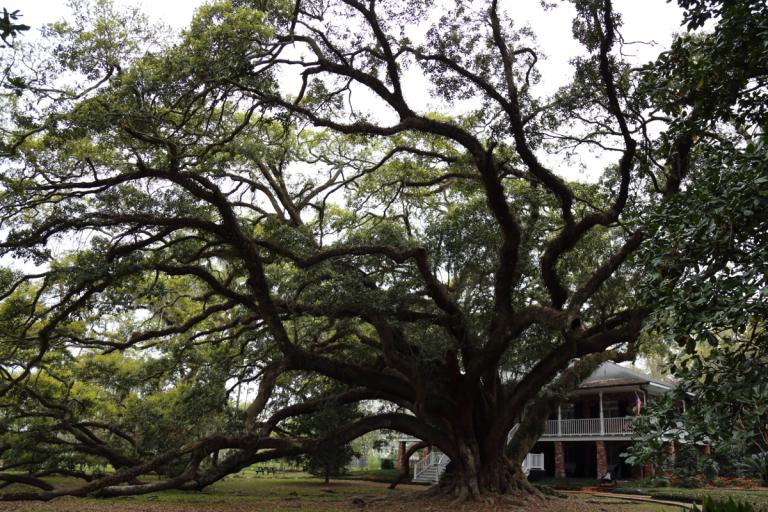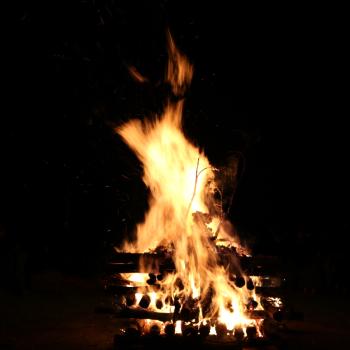Writing has been difficult lately. I’m being pulled in about a dozen directions and none of them are suitable for blogging, at least not for now. I started and discarded two posts for today (one of which I may be able to finish – the other probably not) and was trying to come up with a third when I came across a Facebook post by Byron Ballard asking us to consider what resilience means to us.
What a timely writing prompt…
What is resilience?
The various online dictionaries say resilience is the ability to return to an original form and gives elasticity as an example. I remember that definition from my materials science courses in engineering school. They also say resilience is the ability to recover quickly from adversity, which is the meaning Byron was referring to in her question.
Those are good definitions.
Psychology Today, usually a reliable source, says
Resilience is that ineffable quality that allows some people to be knocked down by life and come back stronger than ever. Rather than letting failure overcome them and drain their resolve, they find a way to rise from the ashes.
This is bullshit.
Resilience is not some mystical substance some of us are born with and others aren’t. Resilience is a virtue, and like all virtues it can be cultivated. Resilient people don’t “come back stronger than ever.” They survive and they keep moving. Sometimes what doesn’t kill them really does make them stronger. Sometimes they buy time till they can make a change. Other times they adjust their goals to a new reality.
Resilience is not a panacea – sooner or later we all die.
Resilience is doing what must be done, no matter what.

There are resilient people and there are resilient systems
Americans love stories of overcoming adversity. They’re inspiring… and they reinforce our idea that anybody can overcome anything with hard work and persistence, so people in bad situations must be lazy and therefore undeserving.
Every season, all the major pro sports leagues give out a Comeback Player of the Year award. The NFL’s award is given to the player “who has shown perseverance in overcoming adversity, in the form of not being in the NFL the previous year, a severe injury, or simply poor performance.” Now, I’ve done just enough athletic training in my life to understand that coming back from an injury or other setback is a lot of work and you can never be sure you’ll get back while you’re doing it. There is resiliency in keeping going even though your dream is in doubt.
But when you’re on a professional sports team you’re still getting paid. You have access to the finest medical care in the world. You have trainers to monitor your progress and make adjustments. Your entire job is to rehab your injury. Players who come back from serious injuries are the beneficiaries of a system that supports them in adversity.
Meanwhile, what happens to the guy working at Walmart who gets injured in a car wreck and can’t work for weeks? If he has insurance it has a large deductible, the doctors will discharge him as soon as they can get away with it, and Walmart sure won’t pay him while he’s not working.
You can have the most can-do, not-gonna-let-it-get-me-down attitude in the world and you’re still going to struggle to overcome ordinary adversity if you don’t have the support of a resilient system.
Build a resilient life
I’d like to live in a society where the Walmart worker who gets in a car wreck has the same level of support as a wide receiver who blows out his knee on the football field. I support policies and candidates that move us in that direction, even though it means my taxes will go up, probably a lot. But I’m not optimistic about seeing much movement in that direction in my lifetime.
If society won’t build resilient structures, build your own.
Obviously, this is easier for some than for others. If you’re born to a wealthy family, it’s easier than if you’re born poor. If you’re young and healthy, it’s easier than if you’re old and sick. Resilience is not a panacea. But if you can build a resilient life, do it.
Choose a suitable career. Until the arrival of universal basis income (don’t hold your breath) you’re going to have to make a living doing something. How much do you need to live the way you want to live? What are you good at? What’s in demand now and likely to remain in demand for the foreseeable future? Having an in-demand career in something you’re good at (and thus better at than most of your competition for available jobs) makes it more likely you can survive the fluctuations of an uncertain economy.
Avoid debt and hoard cash. 57% of Americans can’t cover a $500 unexpected expense. Where do they go? Credit cards if they have them, payday lenders if they don’t. Either one can begin a downward spiral into financial ruin.
If you’re young and just starting out, there’s a lot of things you need… and a lot more things the advertising world tries to convince you you’ve got to have. Say no as much as you can. Once you have a decent cash reserve, then start looking at investments. I have no advice here. I’ve invested conservatively and I’ve done OK, but I’ve had some good luck… and I’ve made some mistakes. Trying to copy what I did would be ill-advised if not impossible.
None of this guarantees you’ll have a good middle class life, much less that you’ll be able to live like the people on TV tell you you’re “supposed” to live. But less debt and more cash make it more likely you’ll be able to handle an unexpected emergency without grossly impacting your life.
Build a family and treasure your friends. Another unhelpful American myth is the rugged individualist, who goes it alone and never needs anything from anybody. Nobody can get through life alone. You need help, for financial support, logistical support, and emotional support.
If your family is abusive, get out as soon as you can. But if they’re good people, don’t alienate them, even if you don’t see eye to eye on a lot of issues. If they live in another part of the country, start building a family of choice where you are. You need a human support system… and there are others who need your support in return.
Or don’t – but make that decision consciously. Your only dream is to be a full-time musician. You really really want to be the witch living deep in the forest, and if your cottage is a beat up travel trailer, so be it. You think the whole system is immoral and you want to devote your life to building something radically different.
It’s your life – live it the way you choose. But make those decisions consciously and in full understanding that what’s doable when you’re 35 and in good health won’t be so easy when age catches up with you.

Cultivate resilience
Whether you have a resilient system supporting you or not, dealing with adversity is hard. But there are ways you can cultivate resilience in your life.
Have a vision for your future. What is it that you want most of all? Growing up, I wanted a nice middle class professional life. That turned out to be not very satisfying, but when I was suffering in the fundamentalist church, with the restrictions of childhood, with typical high school garbage, or with any of the many things that made life difficult for me and countless others, that vision kept me moving. Play the games, mouth the words, and dream of a day when things will be better.
It worked. The vision kept me going when I wanted to quit. Eventually I had to find another vision, and I did. This one is much more satisfying… even though it keeps pushing me further and further into areas where I’m not comfortable.
Have someone else in your life. It’s one thing to say “screw it, I don’t care anymore” when you’re the only one who’s going to suffer because of your lack of resilience. It’s another thing if you’re responsible for someone else too.
Learn from your failures. I do not believe “everything happens for a reason” and certainly not for some “you’re being guided toward something you can’t see” New Age reason. But if something bad happens, the least you can do it learn something from it.
What did you flat-out do wrong? What did you overlook that you should have seen coming? What did you have no way of knowing would happen, but that might happen again?
Assigning blame – to yourself or to others – is not helpful. Figuring out what to do differently next time is essential.
Because while bouncing back from failures is a good and necessary thing, avoiding failures in the first place is better.
Learn to fly
There is nothing that promotes resilience more than a deep, soul-level understanding of what’s important and what isn’t. Learn to fly.
Keep up your daily spiritual practice. Pay attention to the world around you. Pay attention to the spiritual world. Make friends and allies in both worlds. Learn some operative magic. Have a vision for your future.
Life is easier if you have a resilient system supporting you. So build one, and work to build a society that provides one for all. But never forget you are a part of a universe that includes Gods and spirits. Never forget you have ancestors who made it through times even harder than yours.
Never forget you have magic.


















